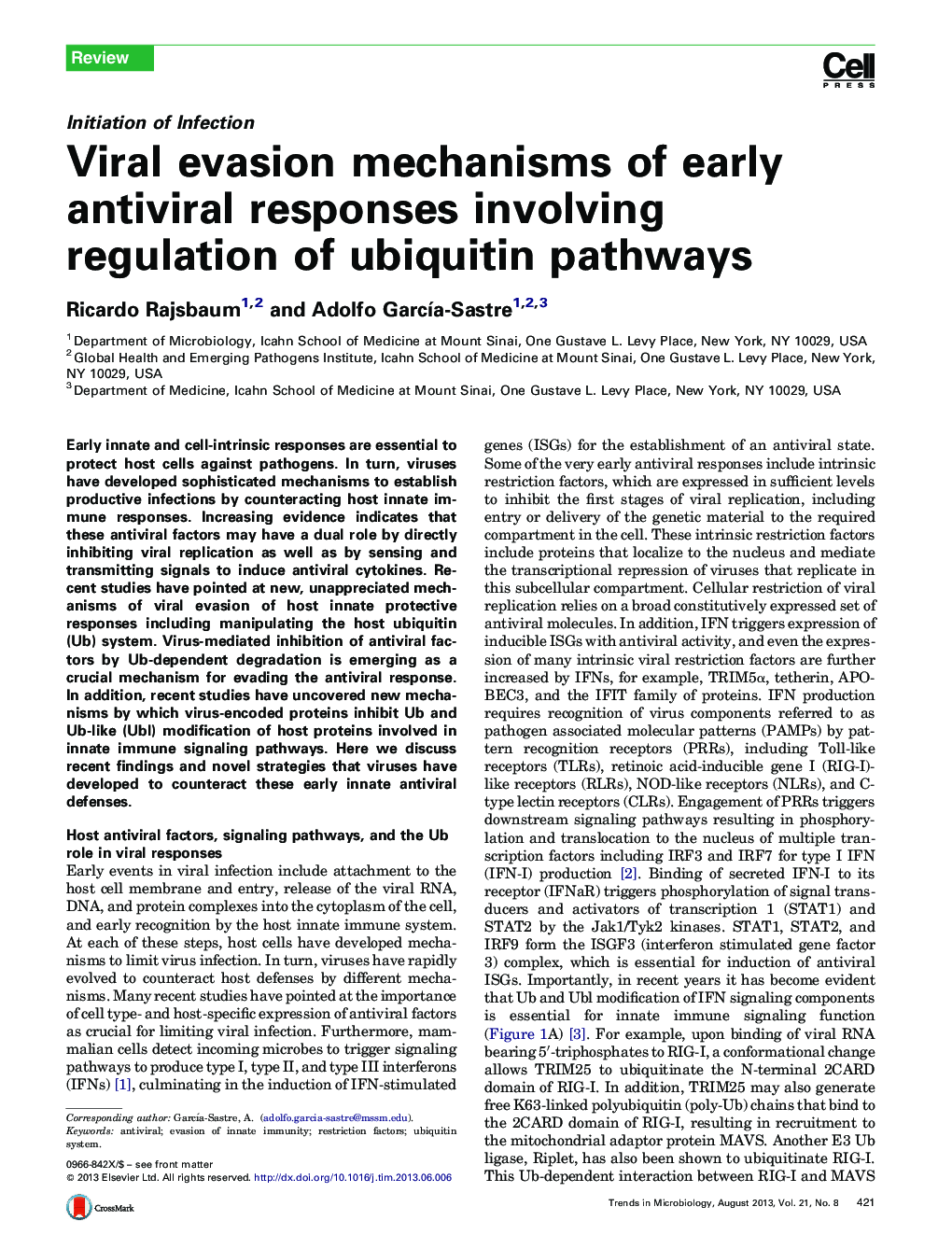| Article ID | Journal | Published Year | Pages | File Type |
|---|---|---|---|---|
| 3421928 | Trends in Microbiology | 2013 | 9 Pages |
•Innate and restriction factors are essential to protect host cells against viruses.•Dual roles of antiviral factors: direct viral inhibition versus innate immune signaling.•Viruses antagonize the antiviral response by manipulating ubiquitin E3 ligases.•Viruses target restriction factors for ubiquitin-dependent degradation.
Early innate and cell-intrinsic responses are essential to protect host cells against pathogens. In turn, viruses have developed sophisticated mechanisms to establish productive infections by counteracting host innate immune responses. Increasing evidence indicates that these antiviral factors may have a dual role by directly inhibiting viral replication as well as by sensing and transmitting signals to induce antiviral cytokines. Recent studies have pointed at new, unappreciated mechanisms of viral evasion of host innate protective responses including manipulating the host ubiquitin (Ub) system. Virus-mediated inhibition of antiviral factors by Ub-dependent degradation is emerging as a crucial mechanism for evading the antiviral response. In addition, recent studies have uncovered new mechanisms by which virus-encoded proteins inhibit Ub and Ub-like (Ubl) modification of host proteins involved in innate immune signaling pathways. Here we discuss recent findings and novel strategies that viruses have developed to counteract these early innate antiviral defenses.
